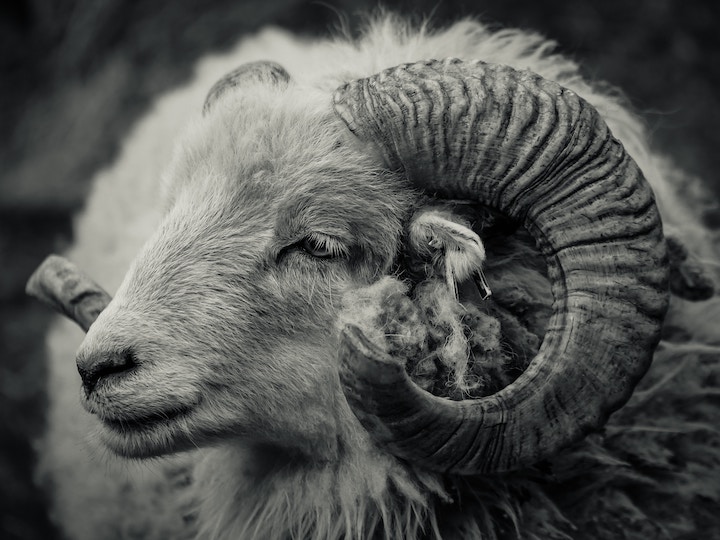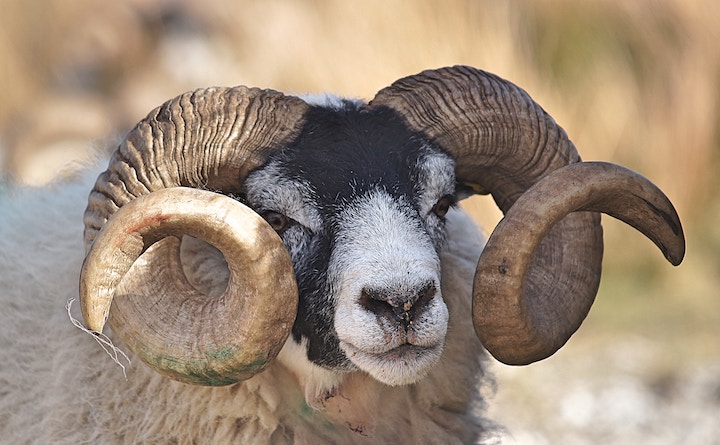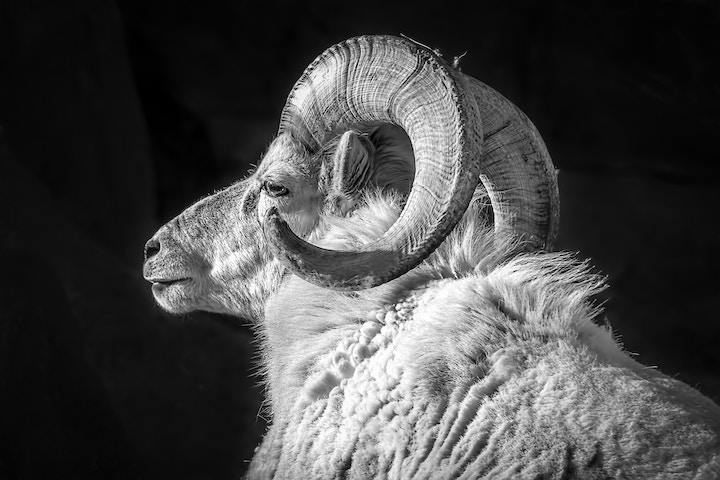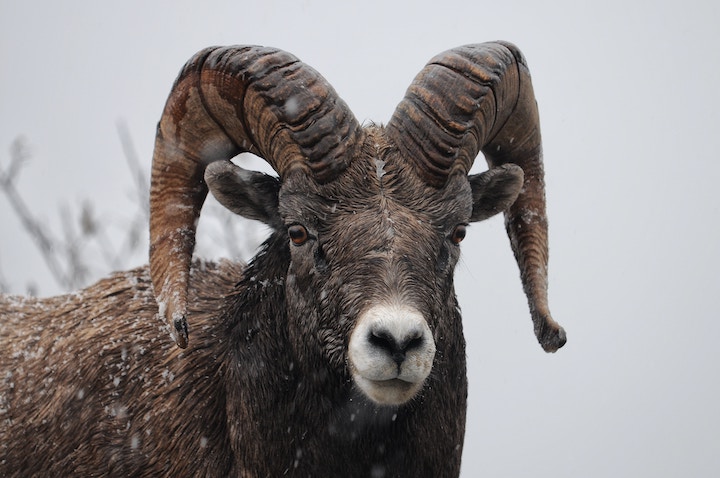Dead rams have long been a symbol of sacrifice and power in various cultures and religions. These majestic creatures hold a significant place in mythology and spiritual beliefs, often representing bravery, leadership, and determination. But what does a dead ram symbolize? Is there a deeper meaning behind its lifeless form?
In this blog post, we will dive into the symbolism behind a dead ram and decipher its meaning in different contexts. From ancient symbolism to modern interpretations, let’s explore the intriguing world of dead ram meaning.
Key Takeaways
- The dead ram holds diverse symbolism and meaning in various cultures around the world.
- It represents sacrifice, power, strength, transformation, leadership, and authority.
- The dead ram carries a profound spiritual meaning, transcending its physical form and connecting us to the divine and metaphysical realms.
- In dreams, a dead ram can symbolize the end of a challenging situation, loss or mourning, a warning or wake-up call, or the need for introspection and self-reflection.
- As a spirit animal, the ram represents determination, assertiveness, leadership, ambition, and bravery.
- Throughout history, the dead ram has held significant symbolism in various cultures, including ancient Egypt, Norse mythology, Greek mythology, Hinduism, and Native American cultures.
- The symbolism behind a dead ram invites us to explore and uncover hidden meanings within ourselves, and to embrace personal and spiritual growth.
Dead Ram Meaning
The spiritual meaning of a dead ram goes beyond its physical form and delves into the realms of the divine and the metaphysical. Understanding the spiritual significance of a dead ram can provide us with deeper insights into the mysteries of life and the interconnectedness of all things. Here are five spiritual meanings associated with a dead ram:
1. Divine Sacrifice: The dead ram represents the ultimate act of sacrifice, where one’s desires and personal needs are willingly surrendered for a higher purpose. It symbolizes the willingness to let go of our own ego and desires in order to serve a greater good.
2. Transformation and Renewal: The death of a ram signifies the shedding of old layers and the opportunity for rebirth and transformation. It reminds us that death is not the end, but a transition into a new existence. The dead ram encourages us to let go of our past limitations and embrace the potential for renewal and growth.
3. Spiritual Power: The dead ram is a symbol of spiritual power and energy. It represents the harnessing of divine forces and the ability to tap into our inner strength and courage. Just as the ram was seen as a powerful creature in ancient mythologies, the dead ram reminds us of our own inherent power and the potential to overcome challenges.
4. Connection to the Divine: The death of a ram represents a passage from the physical world to the spiritual realm. It symbolizes the connection between earthly existence and higher dimensions of consciousness. The dead ram serves as a reminder of our own connection to the divine and the spiritual guidance that is available to us.
5. Spiritual Guidance: In some spiritual traditions, the dead ram is seen as a messenger from the spiritual realm, offering guidance and wisdom. It is believed that the energy and essence of the ram can be tapped into for spiritual insight and enlightenment. The dead ram serves as a reminder to seek guidance from the spiritual realm and to trust in the wisdom of higher forces.

Dead Ram Symbolism
While the spiritual meaning of a dead ram delves into the realms of the divine and the metaphysical, the symbolism behind a dead ram takes on a different perspective. In this section, we will explore five unique and uncommon symbolisms associated with a dead ram:
1. Strength in Death: The lifeless form of a ram may seem paradoxical, but it symbolizes the enduring strength and power even in the face of mortality. Just as a dead ram once possessed great physical strength, its lifeless body serves as a reminder of the indomitable spirit that remains even after death. It represents the resilience and inner power that can be harnessed despite life’s challenges.
2. Sacrificial Transformation: The death of a ram is often associated with sacrifice, and this symbolism extends to its transformational properties. In many cultures, sacrifices were made to appease gods or bring about positive change. Similarly, the death of a ram represents a transformation from one state of being to another. It symbolizes the willingness to let go of old patterns, beliefs, or behaviors in order to embrace new beginnings and personal growth.
3. Spiritual Cleansing: In certain traditions, the dead ram is believed to possess the ability to cleanse negative energy or spiritual impurities. It is seen as a purification ritual, where the sacrifice of the ram allows for a renewal of energy and a clearing of stagnant forces. This symbolism emphasizes the importance of releasing what no longer serves us in order to create space for spiritual growth and rejuvenation.
4. Transcendence and Enlightenment: The death of a ram represents a transcendence from the physical to the spiritual realm. It signifies a journey towards enlightenment and higher states of consciousness. This symbolism reminds us of the impermanence of life and the potential for spiritual evolution beyond our earthly existence. The dead ram serves as a guide on the path towards self-discovery and the pursuit of higher truths.
5. Reflection and Introspection: The lifeless form of a ram encourages deep introspection and self-reflection. It symbolizes the need to examine our own lives, actions, and beliefs. Just as the ram sheds its physical form, we are reminded to shed our own layers of conditioning and self-imposed limitations. The dead ram invites us to explore our inner landscape and confront our deepest fears, insecurities, and desires in order to achieve personal growth and self-realization.
Also Read – Dead Sheep Meaning: An In-Depth Analysis
Dead Ram In Dreams
Have you ever had a dream about a dead ram? Dreaming of a dead ram can be a perplexing experience, as it may leave you wondering about the deeper meaning behind such a vivid image. Dreams are often filled with symbolism, and the presence of a dead ram in your dreams holds its own unique significance.
In dreams, a dead ram can symbolize a variety of different things depending on the context and emotions associated with the dream. One possible interpretation is that the dead ram represents the end of a challenging situation or the resolution of a difficult problem. It may indicate that you have finally overcome an obstacle or achieved a goal that seemed insurmountable. The presence of the dead ram can serve as a reminder of your strength, resilience, and ability to overcome adversity.
Alternatively, dreaming of a dead ram may signify a loss or a sense of mourning. It could represent the end of a significant relationship, the loss of a loved one, or the death of an important aspect of your life. The dead ram in your dream might be a symbol of grief and the need to process and heal from your emotional wounds.
In some cases, dreaming of a dead ram may be a warning or a wake-up call. It could be a sign that you are neglecting important aspects of your life or failing to address certain issues. The dead ram might be urging you to take action, confront your fears, or make necessary changes to improve your well-being. Pay attention to the emotions and messages that arise from this dream, as they may guide you towards a path of self-discovery and personal growth.
Additionally, the dead ram in your dreams may represent the need for introspection and self-reflection. It could be a symbol of the inner conflicts and struggles you are experiencing. The lifeless form of the ram may serve as a mirror, reflecting back to you the parts of yourself that you have suppressed or ignored. This dream may be urging you to explore and confront these inner aspects in order to achieve a sense of wholeness and self-acceptance.
Dreams are highly personal and subjective experiences, so the interpretation of a dead ram in your dreams will ultimately depend on your individual circumstances and emotions. To gain a better understanding of the specific meaning behind your dream, take the time to reflect on the emotions, symbols, and events associated with the dead ram. Consider keeping a dream journal to record your dreams and any insights or realizations that come from them.
Remember, dreams can provide valuable guidance and insight into our subconscious minds. Pay attention to the messages and symbolism that appear in your dreams, as they may hold the key to unlocking deeper truths and personal transformation. The presence of a dead ram in your dreams is an invitation to explore and uncover the hidden meanings within yourself. Embrace this opportunity for self-discovery and allow the wisdom of your dreams to guide you on your journey of growth and self-realization.

Ram As A Spirit Animal
The dead ram holds significant symbolism not only in mythology and spirituality but also as a potential spirit animal. The concept of a spirit animal comes from various indigenous cultures, where it is believed that animals can serve as guides and sources of wisdom. Each spirit animal has its own unique qualities and characteristics that individuals can embody or seek guidance from. So, what does it mean if the ram appears as your spirit animal?
The ram as a spirit animal represents determination, assertiveness, and leadership. It is a powerful and commanding creature, known for its ability to climb great heights and conquer obstacles. If the ram appears as your spirit animal, it signifies that you have the inner strength and determination to overcome challenges and achieve your goals. The ram’s unwavering spirit encourages you to take charge of your life, assert yourself in different situations, and lead with confidence.
Furthermore, the ram as a spirit animal also symbolizes ambition and tenacity. Rams are known for their drive and relentless pursuit of their desires. If the ram appears in your life, it may be a reminder to stay focused on your ambitions and work diligently towards your aspirations. The ram’s spirit will guide you to persist even in the face of adversity, reminding you that with perseverance, you can accomplish great things.
In addition to ambition, the ram as a spirit animal represents fearlessness and bravery. Rams are not easily intimidated and fearlessly face any challenges that come their way. If the ram appears as your spirit animal, it serves as a reminder to embrace courage and confront your fears head-on. The ram’s spirit will support you in stepping outside of your comfort zone and taking risks in pursuit of personal growth and success.
The ram’s presence as a spirit animal also emphasizes the importance of balance and self-care. While rams are known for their ambitious nature, they also know when to rest and recharge. If the ram appears in your life, it may be a sign to find balance between your drive for achievement and your need for self-care. The ram’s spirit will guide you in maintaining a healthy equilibrium between work and play, ensuring that you take care of yourself while pursuing your goals.
Embodying the spirit of the ram means embracing your inner power and harnessing it to make a positive impact in your life and the lives of others. The ram’s assertiveness and determination will inspire you to take on leadership roles and use your influence to bring about positive change. With the ram as your spirit animal, you have the potential to be a strong and influential force in the world.
Check Out – Ram Spiritual Meaning, Symbolism, and Totem
Dead Ram In Various Cultures
Throughout history, the dead ram has held significant symbolism in various cultures around the world. In many ancient civilizations, the ram was revered as a sacred animal and its death carried great spiritual meaning.
In ancient Egypt, the ram was associated with the god Amun, who was often depicted with the head of a ram. Amun was considered the king of the gods, representing creativity, fertility, and strength. The death of a ram in Egyptian culture symbolized the release of the divine energy and power associated with Amun. It was believed that this energy could be harnessed and utilized for various purposes, including spiritual rituals and healing practices.
In Norse mythology, the ram was also a symbol of power and strength. The god Thor, known for his immense strength and protection, was often associated with the ram. In Norse culture, the death of a ram was seen as a sacrifice to appease the gods and gain their favor. It represented a willingness to give up one’s own desires and needs for the greater good, echoing the spiritual meaning of sacrifice mentioned earlier.
In Greek mythology, the ram played a significant role in the story of Jason and the Golden Fleece. The ram with the golden fleece, known as the “Golden Ram,” possessed magical properties and was a symbol of divine favor. The death of the ram in this context represented the culmination of a heroic journey and the attainment of great knowledge and power.
In Hinduism, the ram is associated with Lord Rama, an incarnation of the god Vishnu. Lord Rama is revered for his courage, righteousness, and devotion to dharma (righteousness). The death of a ram in Hindu culture symbolizes the ultimate sacrifice for the greater good and serves as a reminder of the importance of fulfilling one’s duty and following the path of righteousness.
In many Native American cultures, the ram is considered a powerful totem animal. The ram represents courage, determination, and perseverance. The death of a ram in these cultures is seen as a transition into the spiritual realm, where its energy and wisdom can continue to guide and protect those who seek its guidance.
In conclusion, the dead ram holds diverse symbolism and meaning in various cultures around the world. Understanding the significance of the dead ram in different cultural contexts allows us to appreciate the universal themes and lessons it imparts. Whether in mythology, spirituality, dreams, or as a spirit animal, the dead ram continues to inspire and guide individuals on their own personal and spiritual journeys.

Conclusion
The symbolism behind a dead ram is a fascinating topic that invites us to delve into the depths of mythology, spirituality, and cultural beliefs. When we encounter the lifeless form of a ram, we are presented with a myriad of meanings and interpretations that can enrich our understanding of life and the human experience.
The dead ram carries a profound spiritual meaning, transcending its physical form and connecting us to the divine and metaphysical realms. It represents the ultimate act of sacrifice, where one’s desires and personal needs are willingly surrendered for a higher purpose. This symbolism invites us to reflect on the power of letting go of our own ego and desires in order to serve a greater good. It reminds us that through sacrifice, we can tap into our inner strength and courage, harnessing spiritual power and energy.
Additionally, the dead ram serves as a guide, offering spiritual guidance and wisdom. It represents a passage from the physical world to the spiritual realm, highlighting our connection to the divine and the availability of spiritual guidance. By seeking guidance from the spiritual realm and trusting in the wisdom of higher forces, we can navigate through life’s challenges and achieve personal growth and self-realization.
In the realm of symbolism, the dead ram takes on different perspectives and interpretations. It symbolizes strength and endurance, reminding us of the indomitable spirit that remains even after death. It represents sacrificial transformation, urging us to let go of old patterns and beliefs in order to embrace new beginnings. The dead ram also symbolizes reflection and introspection, inviting us to explore our inner landscape and confront our deepest fears and desires.
When the dead ram appears in dreams, its symbolism becomes even more personal and subjective. It may represent the end of a challenging situation or the resolution of a difficult problem. It may symbolize loss and mourning, urging us to process and heal from emotional wounds. It may serve as a warning or wake-up call, pushing us to take action and make necessary changes in our lives. Or it may symbolize the need for introspection and self-reflection, inviting us to explore and confront our inner conflicts and struggles.
In the realm of spirit animals, the ram embodies determination, assertiveness, and leadership. If the ram appears as your spirit animal, it signifies your inner strength and ability to overcome challenges. It encourages you to stay focused on your ambitions and pursue personal growth and success with courage and fearlessness.
Throughout history, the dead ram has held significant symbolism in various cultures.
Frequently Asked Questions
- What does a dead ram symbolize in spirituality?
In spirituality, a dead ram symbolizes divine sacrifice, transformation and renewal, spiritual power, connection to the divine, and spiritual guidance. It represents the willingness to let go of personal desires for a greater purpose and serves as a reminder of our own inherent power and the potential to overcome challenges.
- How does the dead ram symbolize strength in death?
The dead ram symbolizes strength in death by representing the enduring power and resilience that remains even after mortality. It serves as a reminder of the indomitable spirit and inner power that can be harnessed despite life’s challenges.
- What is the significance of a dead ram in dreams?
Dreaming of a dead ram can symbolize the end of a challenging situation, loss or mourning, a warning or wake-up call, or the need for introspection and self-reflection. The emotions and context of the dream will determine the specific meaning for the individual.
- How does the ram serve as a spirit animal?
As a spirit animal, the ram represents determination, assertiveness, leadership, ambition, and bravery. It signifies the inner strength and ability to overcome challenges, encouraging individuals to stay focused on their ambitions and pursue personal growth with courage and fearlessness.
- How has the dead ram been symbolized in various cultures?
Throughout history, the dead ram has held significant symbolism in various cultures. In ancient Egypt, it represented divine energy and power. In Norse mythology, it symbolized sacrifice and the pursuit of divine favor. In Hinduism, it signified the ultimate sacrifice for the greater good. In Native American cultures, it was considered a powerful totem animal, symbolizing courage, determination, and perseverance.

